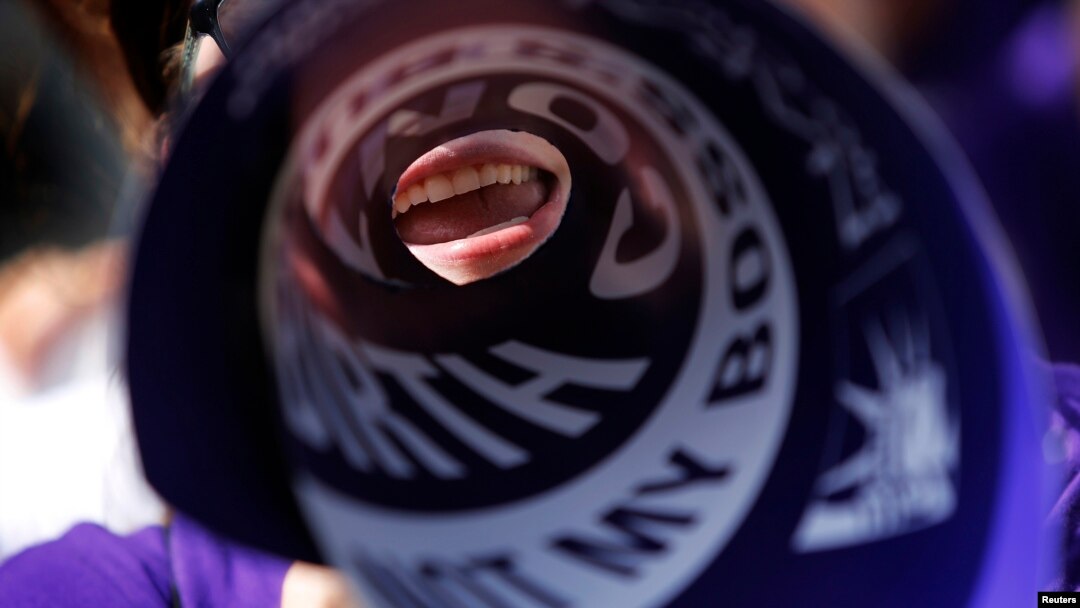An appeals court has halted a lower court ruling that would have allowed an undocumented teenager, who is in detention in south Texas, to have an abortion.
The U.S. Court of Appeals in Washington stayed Wednesday’s ruling in order to hold a hearing Friday on the merits of the case.
Jane Doe, as she is known in court to protect her privacy, has been detained in a refugee shelter in Brownsville, Texas, since September 11, when she was apprehended at the U.S.-Mexico border.
Doe, 17, obtained permission from a state judge, in lieu of parental consent, and raised private money to pay for the procedure. But Health and Human Services Department (HHS) has refused to grant her permission to leave the shelter in order to obtain it.
HHS has jurisdiction over the welfare of unaccompanied minors who are caught crossing the border.
Lower court Judge Tanya Chutkan had ruled that the government must allow Jane Doe to get an abortion by Saturday. Lawyers for the teenager had argued that time is critical. Doe is 15 weeks pregnant. Under Texas state law, it is illegal to obtain an abortion after 20 weeks of pregnancy.’
But within hours of the lower court ruling, Department of Justice lawyers asked that the lower court ruling be put on hold, arguing that Doe still has a number of weeks to end her pregnancy.
HHS has a policy against facilitating abortion, the government brief said, adding that Doe could easily get the procedure done by returning to her own Central American country.
"There is no constitutional right for a pregnant minor to illegally cross the U.S. border and get an elective abortion while in federal custody," HHS said in an earlier statement.
But in court Wednesday, American Civil Liberties Union lawyer Brigitte Amiri argued, “The government cannot ban abortion for anyone.” She cited Roe v. Wade, the Supreme Court ruling which makes it illegal to prevent an abortion before the third trimester.
“Each week of delay will increase risks of the medical procedure,” Amiri added.
Cost to government
Government attorney Scott Stewart said allowing Doe to travel for the abortion imposes a burden on the government, which is not obligated to pay or otherwise assist with the health care of undocumented immigrants.
Judge Tanya Chutkan pointed out that Doe was not asking the government to transport her or pay for her abortion, but only to allow her to leave the detention center so she could go to the medical facility where the abortion would be performed.
“Is it your position that her coming here unlawfully extinguishes her of constitutional rights?” Chutkan asked.
Stewart argued that leaving the refugee shelter was not “a willy-nilly process,” but Chutkan pointed out that Doe had obtained judicial authorization to obtain the abortion, which entitled her to medical treatment.
“Aren’t residents of this shelter allowed to leave for medical procedures?” Chutkan said. “Why is this any different?”
Stewart maintained allowing Doe to leave the shelter was facilitative action, and thus a burden on the government.
“The government has the obligation to look after the well-being [of Jane Doe],” which was undertaken when Doe was transported to a pregnancy crisis center.
The ACLU claims this same center attempted to dissuade Doe from getting an abortion.
According to documents procured by Politico, Scott Lloyd, who took control of HHS' Office of Refugee Resettlement, (part of the Administration for Children and Families) in early March, has forbidden facilities from authorizing abortion procedures and threatened to cut funding if they do.
“The government certainly had no problem taking her against her will to receive pregnancy counseling,” Chutkan said, adding that she was "astounded" that the administration of Donald Trump would try to prevent the procedure.
ACLU lawyer Amiri told VOA News that she hoped the ruling would set a precedent and make abortion accessible to other undocumented girls.
But she predicted HHS would appeal.


